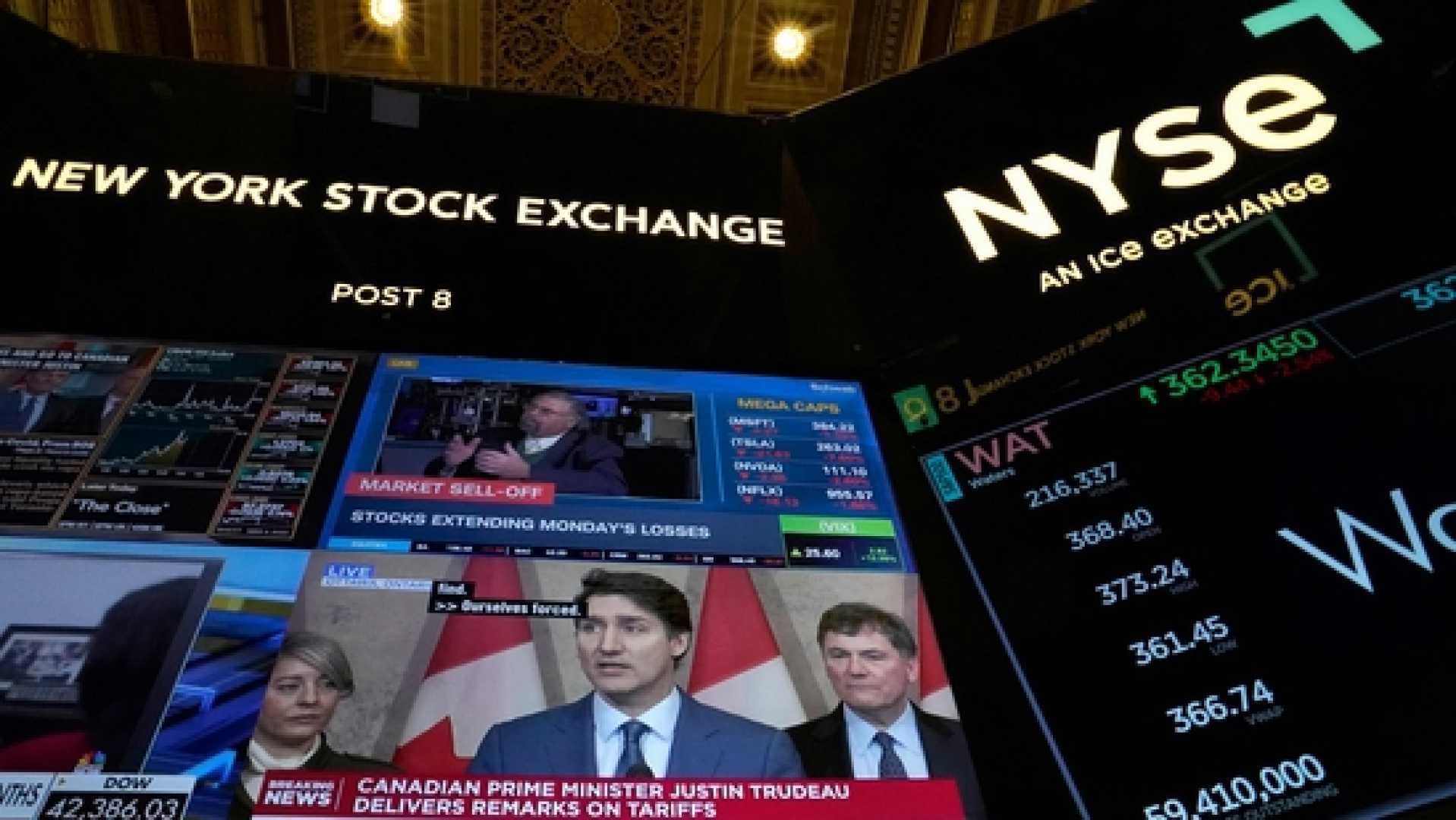Business
Stocks Plummet Amid Inflation Concerns and Tariff Uncertainty

NEW YORK, March 17, 2025 — U.S. stocks experienced a sharp decline on Friday as investors navigated tariff uncertainties and processed alarming inflation data. The Dow Jones Industrial Average fell 477 points, or 1.1%, while the S&P 500 and Nasdaq dropped 1.3% and 1.9%, respectively, amidst a backdrop of soaring inflation expectations.
Shares of leading technology companies bore the brunt of the market pressure, with giants such as Tesla and Amazon each losing over 3%. Apple and Facebook also faced declines of approximately 2%. The downturn followed the release of a consumer sentiment report for March that slightly missed expectations, revealing an unsettling rise in inflation forecasts.
Data from the Bureau of Economic Analysis indicated that the Personal Consumption Expenditures (PCE) index rose 2.8% in February, marking a 0.4% increase from the previous month. These figures heightened fears about persistent inflation, as economists had anticipated a 2.7% annual increase and a 0.3% monthly increase. Consumer spending rose 0.4%, falling short of the anticipated 0.5% increase.
Dan Siluk, a portfolio manager at Janus Henderson, commented on the mixed results of the PCE report, stating, “The latest PCE report presented mixed results, with headline figures aligning with expectations, while core numbers reveal a slight but notable increase. Such resilience in core inflation, persistently above the Federal Reserve’s target, suggests expectations for a shift in monetary policy may need to be recalibrated, potentially affecting the timing of interest rate adjustments.”
Investor unease was further amplified by recent announcements from President Donald Trump, who hinted at potential tariffs on all imported vehicles, escalating concerns about a possible economic slowdown. Bloomberg reported that the European Union is contemplating concessions to mitigate the impact of Trump’s impending tariff announcements, expected post-April 2.
The stock market is on track for its fifth weekly decline in six weeks, with the Nasdaq down 1.9% and the S&P 500 down 1.1% since the beginning of the week. The Dow operated with a minor loss of 0.5%.
In a related development, Trump reported a positive conversation with Canadian Prime Minister Mark Carney, indicating future collaboration on economic matters. “It was an extremely productive call, we agree on many things, and will be meeting immediately after Canada’s upcoming election,” Trump posted on Truth Social.
Despite the significant drop on Friday, electric vehicle manufacturer Tesla is poised to end its longest weekly losing streak, having experienced a 3% loss in Friday’s session but still up over 6% for the week, which could mark the first positive week in ten.
The University of Michigan reported that consumer sentiment for March registered at 57, slightly below expectations of 57.9. Director Joanne Hsu noted a surge in long-run inflation expectations from 3.5% in February to 4.1% in March, the highest since 1993.
As market analysts track these developments, they maintain a watchful eye on the inflation trajectory and its potential consequences for monetary policy, as uncertainties loom over trade relations and economic health.












